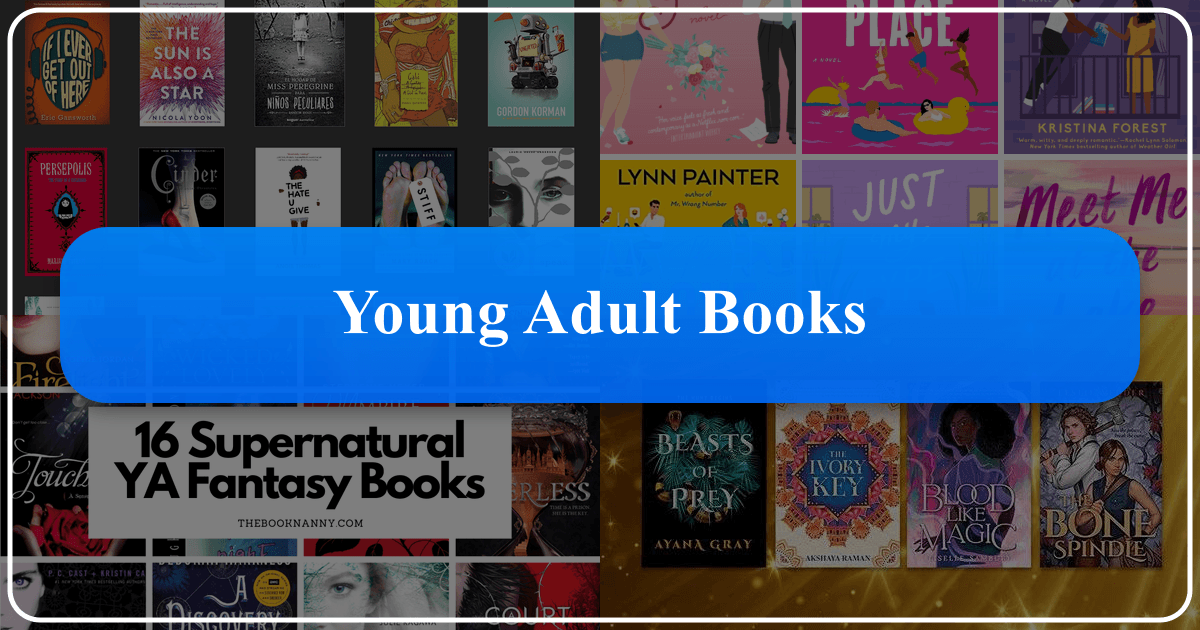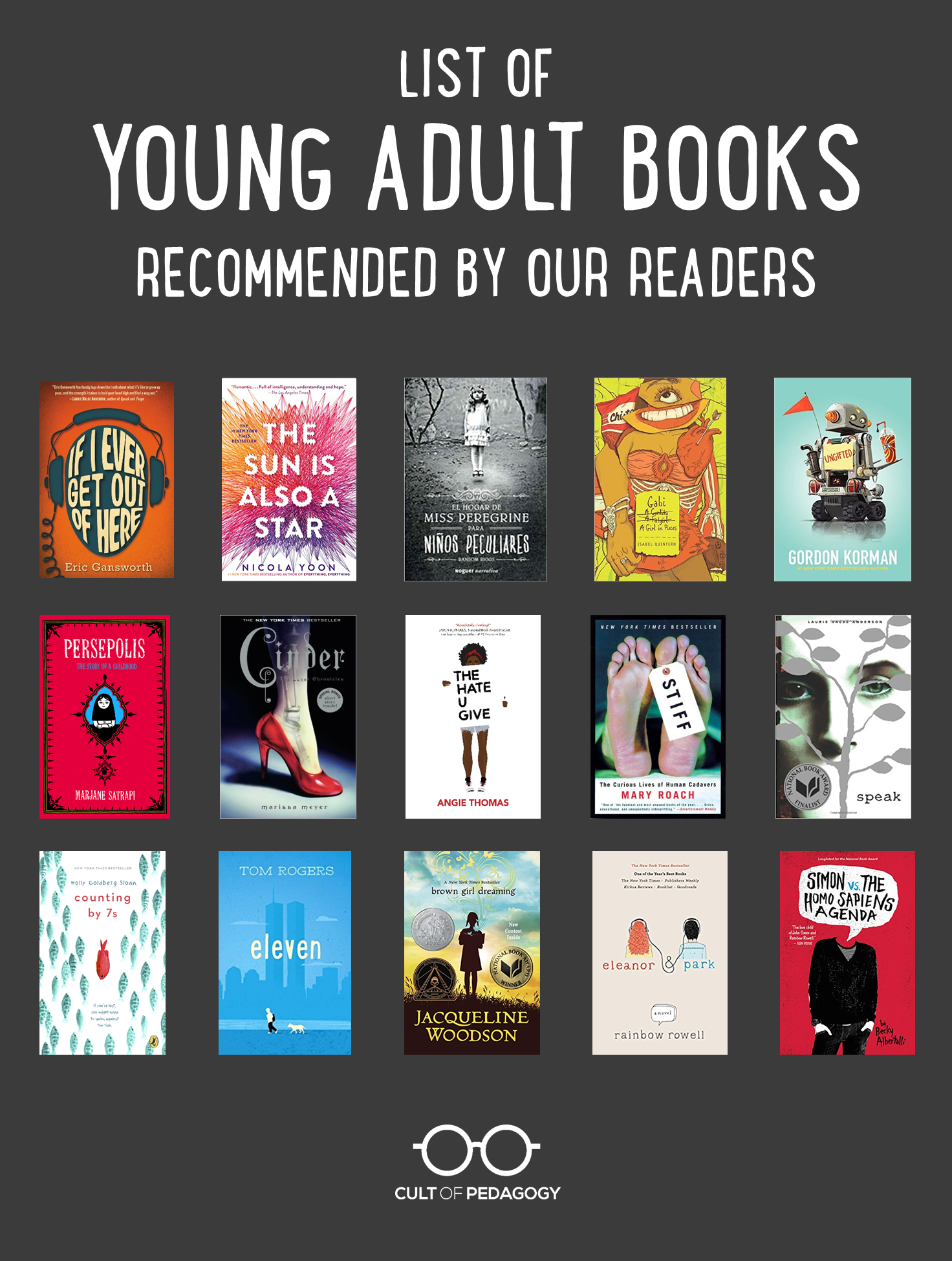Young Adult Books: A Comprehensive Guide

Young Adult (YA) literature, a genre typically targeted at readers in middle or high school, has transcended its initial audience to captivate readers of all ages. The enduring appeal of YA books lies in their ability to explore complex themes, relatable characters, and captivating narratives that resonate deeply, regardless of age. This exploration delves into the multifaceted world of YA literature, examining its genres, iconic authors, educational value, its presence in libraries, and its significant cultural impact.
The Diverse Landscape of Young Adult Genres
YA books encompass a vast array of genres, offering something for every reader. From the heart-pounding thrills of dystopian fiction to the enchanting worlds of fantasy and science fiction, the genre’s versatility is undeniable. Romance, historical fiction, contemporary realism, mystery, thriller, and even poetry find fertile ground within the YA landscape. This diverse range caters to the evolving tastes and interests of young readers, ensuring a continuously expanding and engaging selection.

Within each genre, the storytelling techniques employed are often sophisticated, grappling with themes of identity, self-discovery, societal pressures, and relationships with nuance and depth. Authors skillfully blend fantastical elements with realistic portrayals of adolescence, creating stories that feel both imaginative and grounded in the everyday experiences of young people. The emotional resonance of YA books is heightened by the focus on the often tumultuous and transformative journey of adolescence, allowing readers of all ages to connect with the emotional core of the narratives.
Exploring Popular YA Subgenres
Dystopian Fiction: This subgenre explores societies characterized by oppression, control, and often a stark contrast between the privileged and the marginalized. YA dystopian novels often use allegorical settings to critique real-world societal issues, prompting critical thinking and a deeper understanding of power structures. The protagonist’s journey of rebellion and self-discovery in these harsh environments resonates with young readers facing their own challenges.
Fantasy: YA fantasy literature transports readers to magical worlds filled with mythical creatures, intricate plots, and compelling characters with extraordinary abilities. These narratives delve into themes of good versus evil, friendship, courage, and the exploration of one’s inner strength. The imaginative scope of YA fantasy often fosters creativity and an appreciation for diverse narratives.

Science Fiction: This subgenre often explores futuristic settings, advanced technology, and often tackles complex scientific and societal themes. YA science fiction frequently grapples with questions about humanity’s future, technological advancement, and ethical considerations related to innovation. The forward-looking perspective of this subgenre can inspire curiosity and critical examination of the present.
Contemporary Realism: These novels focus on realistic portrayals of adolescent life, tackling topics like family relationships, peer pressure, mental health, and social injustices. The relatable nature of these stories allows young readers to feel understood and seen, fostering empathy and facilitating conversations around important issues. The realistic portrayal of everyday struggles in YA contemporary realism offers solace and a sense of community for readers navigating their own complexities.
Iconic Authors and their Enduring Impact

Many authors have significantly shaped the YA literary landscape, leaving an indelible mark on the genre and inspiring generations of readers. Their writing styles vary greatly, from lyrical prose to fast-paced narratives, but they all share a common thread: the ability to connect with readers on an emotional level. These authors have tackled diverse themes and issues, often pushing boundaries and challenging societal norms.
Some of the most influential YA authors include:
Suzanne Collins: Known for the Hunger Games trilogy, Collins created a dystopian world that resonated deeply with readers, sparking conversations about social inequality and oppression. Her fast-paced writing style and compelling characters made the series a global phenomenon.
John Green: Green’s novels, such as The Fault in Our Stars and Looking for Alaska, are known for their emotional depth and exploration of complex themes like loss, love, and the search for meaning. His introspective writing style and insightful characters connect with readers on a profound level.
Stephen Chbosky: The Perks of Being a Wallflower, a coming-of-age story, uses epistolary form to tell the tale of a shy teenager and his struggles with mental health and social acceptance. The intimate narrative style connects readers to the protagonist’s emotional journey.
Veronica Roth: Roth’s Divergent series established itself as a prominent entry in the dystopian genre with its intricate world-building, action-driven plots, and morally complex characters who navigate a rigidly structured society.
These authors and countless others have helped solidify YA literature’s position as a rich and diverse literary space, exploring profound themes and showcasing the power of storytelling to impact and shape perceptions.
The Educational Value and Life Lessons in Young Adult Literature
YA novels offer far more than just entertainment; they provide valuable educational opportunities and offer crucial life lessons. They often tackle complex social and emotional issues that are relevant to young readers, fostering empathy and understanding. The narratives presented can facilitate conversations around crucial themes, sparking critical thinking and promoting a deeper understanding of the world.
Reading YA books can:
Improve literacy skills: Reading itself enhances vocabulary, comprehension, and overall reading ability. YA books engage readers with their compelling narratives, making reading a more enjoyable experience and promoting a love of literature.
Enhance emotional intelligence: YA novels frequently delve into the complexities of human emotions, relationships, and social dynamics. By reading about different perspectives and challenges, readers can enhance their own emotional understanding and empathy.
Promote critical thinking: Many YA books present ethical dilemmas and challenge societal norms. This compels readers to question their assumptions and beliefs, fostering critical thinking and independent thought.
Expand cultural awareness: YA literature often showcases diverse cultures, backgrounds, and perspectives. This broadens readers’ understanding of the world and promotes inclusivity and tolerance.
Encourage self-reflection: The journeys of self-discovery undertaken by characters in many YA books encourage introspection and self-awareness among readers. Readers are invited to reflect on their own values, experiences, and beliefs.
Young Adult Books in Libraries: Access and Preservation
Libraries, both physical and digital, play a crucial role in ensuring access to YA literature for young readers and readers of all ages. Public libraries offer a vast collection of YA books, providing a vital resource for education and recreational reading. Digital libraries further expand access, providing easy access to a wider range of titles.
The preservation of YA literature, both physical copies and digital archives, ensures that future generations can continue to enjoy and learn from these valuable works. Rare book collections and archives maintain historical records of significant YA titles, documenting the evolution of the genre and its impact on society.
The Role of Libraries in Fostering a Love of Reading
Libraries are not merely repositories of books; they are vital community centers that cultivate a love of reading. Library programs and activities specifically designed for young readers promote engagement and interaction, fostering a sense of community and shared experience. These programs often use YA literature as a springboard for discussions, creative writing workshops, and book clubs, further embedding the value of reading within the lives of young people.
The Cultural Impact of Young Adult Literature
YA books have a profound and widespread cultural impact, influencing trends, sparking conversations, and shaping societal attitudes. Adaptations of YA novels into films, television shows, and video games broaden their reach, introducing the stories and themes to even wider audiences. The popularity of many YA books leads to their becoming significant cultural touchstones, discussed in various media and integrated into social conversations. The sheer breadth of themes covered in the genre allows it to both reflect and shape the cultural landscape.
The influence of YA literature extends to:
Fashion and style: Popular YA series have influenced fashion trends, with characters’ styles being emulated by readers.
Film and television: Many successful YA novels have been adapted into movies and television shows, further increasing their cultural reach and influencing film and television aesthetics.
Social media and online communities: YA literature fosters extensive online communities and social media engagement, creating spaces for discussions, fan theories, and shared experiences around the books.
Social movements and activism: YA novels often address significant social issues, thereby sparking discussions and inspiring activism around these themes.
In conclusion, Young Adult literature presents a captivating and multifaceted landscape, offering diverse genres, influential authors, profound life lessons, and a widespread cultural impact. Its enduring appeal transcends age, making it a significant literary phenomenon deserving of continued study and appreciation. The role of libraries in preserving and promoting access to YA books remains crucial in ensuring that these stories continue to resonate with readers for generations to come.